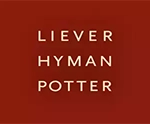On Nov. 19, the Pennsylvania Supreme Court issued opinions in two important civil cases:
In Zauflik v. Pennsbury School District, the Court upheld the limit on damages set forth in a PA statute as to lawsuits against against local government entities like a school district. The PA Supreme Court denied the plaintiff, a student whose leg was amputated after being run over by a school bus, the ability to receive more than the $500,000 statutory damages cap and obtain full recovery for her injuries.
Justice Baer observed that the Pennsbury School District had $11 million in insurance coverage, but the liability cap has to be changed by the legislature, not the courts. “Accordingly, it is my hope that this case will serve as an impetus for legislative action to increase the $500,000 limitation on recovery from political subdivisions.” “It is obvious that money in 2014 does not spend as it did in 1978 (when the law was enacted). Notably, that year the Governor of Pennsylvania earned somewhere around $70,000. Today his salary exceeds $180,000. In 1978, a member of the General Assembly, which passed the cap earned $25,000 a year. Today a legislator earns approximately $84,000. Notwithstanding this clear evidence of inflation, the cap remains the same.”
In the second case, Tincher v. Omega Flex, Inc., the Court ruled 4-2 to decline to adopt the Restatement (Third) of Torts. Under the proposed Third Restatement, defendants in products liability cases would have been able to introduce elements regarding the foreseeability of a product’s risks, and whether alternative, safer designs were available at the time the product was made. The court’s ruling in this case effectively means that Pennsylvania courts will continue to follow the Restatement (Second).
Although the court did not adopt the Restatement (Third), it is crucial to recognize that the Court overruled Azzarrello v. Black Brothers Co., the important 1978 strict liability opinion. The Supreme Court did adopt new principles for a proper analysis of these claims, holding that a plaintiff pursuing a strict liability claim may prove a defective condition by showing either (1) the danger is unknowable and unacceptable to the average or ordinary consumer, or (2) a reasonable person would conclude that the probability and seriousness of harm caused by the product outweigh the burden or costs of taking precautions.
Thanks to the Pennsylvania Association for Justice for sharing its prompt summary from which this article was prepared.

